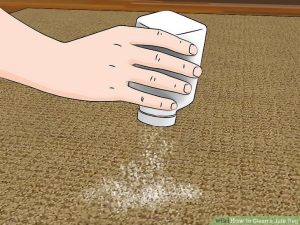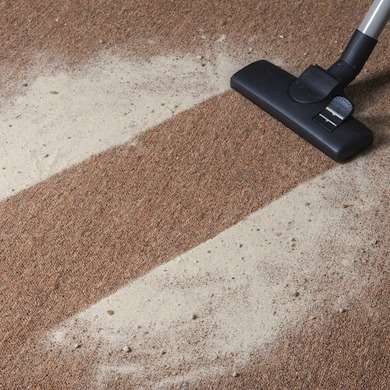How to Clean a Rug
Rugs not only add warmth and coziness to our homes but also serve as essential pieces of decor. However, to keep them looking their best and ensure their longevity, proper maintenance and cleaning are vital. In this extensive guide, we’ll delve into the art of rug cleaning, covering various aspects from gathering your cleaning supplies to mastering different cleaning techniques.
Why Keeping Your Rug Clean Is Important
Your rug is more than just a pretty addition to your home; it’s also a catch-all for dust, dirt, and other particles that accumulate over time. Regular cleaning is essential to maintain a healthy living environment, improve indoor air quality, and extend the life of your rug.
Different Types of Rugs
Rugs come in various materials, including wool, synthetic fibers, natural materials like jute and sisal, and specialty rugs like Persian and Oriental. Each type requires unique care and cleaning methods to ensure their beauty and integrity remain intact. Also, read about What Size Rug for Queen Bed
Gathering Your Cleaning Supplies
Before you begin cleaning, gather the necessary supplies. For standard cleaning, you’ll need a vacuum cleaner, mild detergent, warm water, a soft-bristle brush, and a bucket. However, depending on your rug’s material and the specific cleaning method, additional items may be required.
Special Considerations for Different Rug Materials
Wool and natural fiber rugs are more delicate and should be treated with care. Synthetic rugs, on the other hand, are often more durable and can withstand more rigorous cleaning methods. It’s essential to consider the material when choosing your cleaning supplies.
Eco-friendly Cleaning Options
If you’re environmentally conscious, you can opt for eco-friendly rug cleaning solutions. These products are safe for your rug and the environment, offering a sustainable and effective cleaning alternative. Don’t forget to visit our website globallbrowse.com
Preparing Your Rug for Cleaning
Before you jump into cleaning, there are some essential prep steps to ensure your rug cleaning efforts are successful.
Removing Loose Dirt and Debris
Start by shaking your rug outside to dislodge loose dirt and debris. Then, use a vacuum cleaner to remove surface dust and dirt. Be gentle, especially if you’re dealing with an antique or delicate rug.
Handling Pet Stains and Odors
If you have pets, accidents happen. It’s crucial to tackle pet stains and odors promptly. Enzyme-based cleaners are effective in neutralizing pet odors. However, remember that different rug materials may require distinct treatment methods.
Identifying Stains and Their Treatment
Knowing what you’re dealing with is crucial. Different stains, be it red wine or coffee, require specific treatments to avoid permanent damage. Always blot, don’t rub, to prevent the stain from spreading.

Different Cleaning Techniques
Rugs come in various materials, each requiring a different cleaning approach. Here, we’ll explore various cleaning techniques, ranging from basic vacuuming to professional dry cleaning.
Vacuuming
Regular vacuuming is essential to remove surface dirt and prevent it from settling deep into the fibers. Use a vacuum cleaner with adjustable height settings to ensure thorough cleaning without damaging your rug.
Steam Cleaning
Steam cleaning is a highly effective method for deep cleaning and sanitizing rugs. It’s especially useful for removing embedded dirt and allergens. However, not all rugs can withstand the moisture associated with this method.
Shampooing
Shampooing your rug involves using a specialized rug shampoo and a gentle brush. It’s ideal for refreshing your rug and removing light to moderate soiling.
Dry Cleaning
Dry cleaning is a method suitable for delicate rugs and those that cannot handle moisture. It involves the use of dry cleaning solvents, making it a safe option for preserving the beauty of your rug.
Spot Cleaning
Spot cleaning is perfect for tackling specific stains as they occur. It’s a handy technique to prevent permanent damage and maintain the appearance of your rug.
DIY vs. Professional Rug Cleaning
When it comes to cleaning your rug, you have two main options: doing it yourself or hiring a professional cleaning service. Both approaches have their pros and cons.
Benefits and Drawbacks of Both Options
DIY cleaning gives you control over the process and can be cost-effective. However, professional cleaning services have the expertise and equipment to handle even the most challenging cleaning tasks.

How to Choose the Right Method for Your Rug
Consider the material, the extent of soiling, and your comfort level with DIY cleaning. Professionals are best suited for valuable and antique rugs.
Costs Associated with Professional Cleaning
The cost of professional cleaning varies depending on the rug’s size, material, and the cleaning method used. It’s essential to get quotes from reputable rug cleaning services.
Step-by-Step Rug Cleaning Guide
Now that you have an overview of the various cleaning methods, let’s dive into a step-by-step guide for each one.
Vacuuming
- Prepare your vacuum cleaner.
- Adjust the height setting.
- Start from the center and work your way out.
- Vacuum the rug in both directions.
- Repeat if necessary.
Steam Cleaning
- Check if your rug can withstand moisture.
- Prepare your steam cleaner.
- Fill with the recommended solution.
- Start at one corner and work systematically.
- Allow the rug to dry completely.
Shampooing
- Test the shampoo on an inconspicuous area.
- Prepare the rug and the shampoo.
- Use a soft brush to work the shampoo into the rug.
- Rinse thoroughly and allow it to dry.
Dry Cleaning
- Vacuum the rug first.
- Apply the dry cleaning solvent as directed.
- Gently rub the solvent into the rug.
- Allow it to dry completely.
Spot Cleaning
- Blot the stain with a clean, white cloth.
- Apply a stain-specific cleaner if necessary.
- Work from the outer edges towards the center.
- Rinse and blot dry.
Preventative Measures
Keeping your rug clean is easier when you follow these preventative measures:
How to Keep Your Rug Clean for Longer
- Place doormats at entrances.
- Establish a no-shoes policy.
- Rotate your rug regularly.
Avoiding Common Mistakes That Damage Rugs
- Avoid using harsh chemicals.
- Don’t scrub vigorously.
- Keep direct sunlight exposure to a minimum.
The Role of Rug Pads and Furniture Placement
- Rug pads prevent slipping and provide extra cushioning.
- Proper furniture placement prevents uneven wear.
Caring for Different Types of Rugs
Each type of rug requires specific care:
Oriental and Persian Rugs
These valuable rugs should be cleaned professionally.
Wool Rugs
Regular vacuuming and occasional professional cleaning are recommended.
Synthetic Rugs
These durable rugs can handle more robust cleaning methods.
Natural Fiber Rugs
Avoid excess moisture, as it can damage natural fibers.
Shag Rugs
Shag rugs require gentle care to maintain their appearance.
Allergies and Rug Cleaning
Clean rugs play a significant role in improving indoor air quality, especially if you suffer from allergies.
How a Clean Rug Can Improve Indoor Air Quality
Reducing dust and allergen buildup can make your home a healthier place.
Rug Cleaning for Allergy Sufferers
Regular cleaning is essential for allergy sufferers. Consider using HEPA filters in your vacuum cleaner.
Using Hypoallergenic Cleaning Products
Opt for hypoallergenic rug cleaning products to minimize allergen exposure.
Conclusion
In conclusion, knowing how to clean a rug is essential for maintaining a healthy and appealing living space. Whether you choose to take on the task yourself or opt for professional cleaning services, the key is to keep your rug in the best possible condition to enjoy its beauty for years to come.
FAQs
- How often should I clean my rug?
Regular vacuuming should be done at least once a week, while a deeper clean can be performed every 12-18 months, depending on the rug’s material and usage.
- Can I clean my rug with regular household cleaning products?
It’s best to use products specifically designed for rug cleaning to avoid damage or discoloration.
- What should I do if my rug gets wet?
If your rug gets wet, it’s essential to dry it as quickly as possible to prevent mold and mildew growth. Consider professional cleaning for severe cases.
- How do I prevent fading in my rug caused by sunlight?
Rotate your rug regularly to ensure even exposure to sunlight. You can also use curtains or blinds to block direct sunlight.
- Are there any DIY methods for removing tough stains from my rug?
There are several DIY stain removal methods, including using a mixture of white vinegar and water, but it’s important to be cautious and test in an inconspicuous area first.







